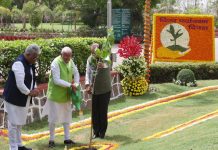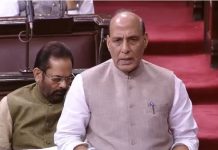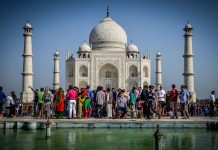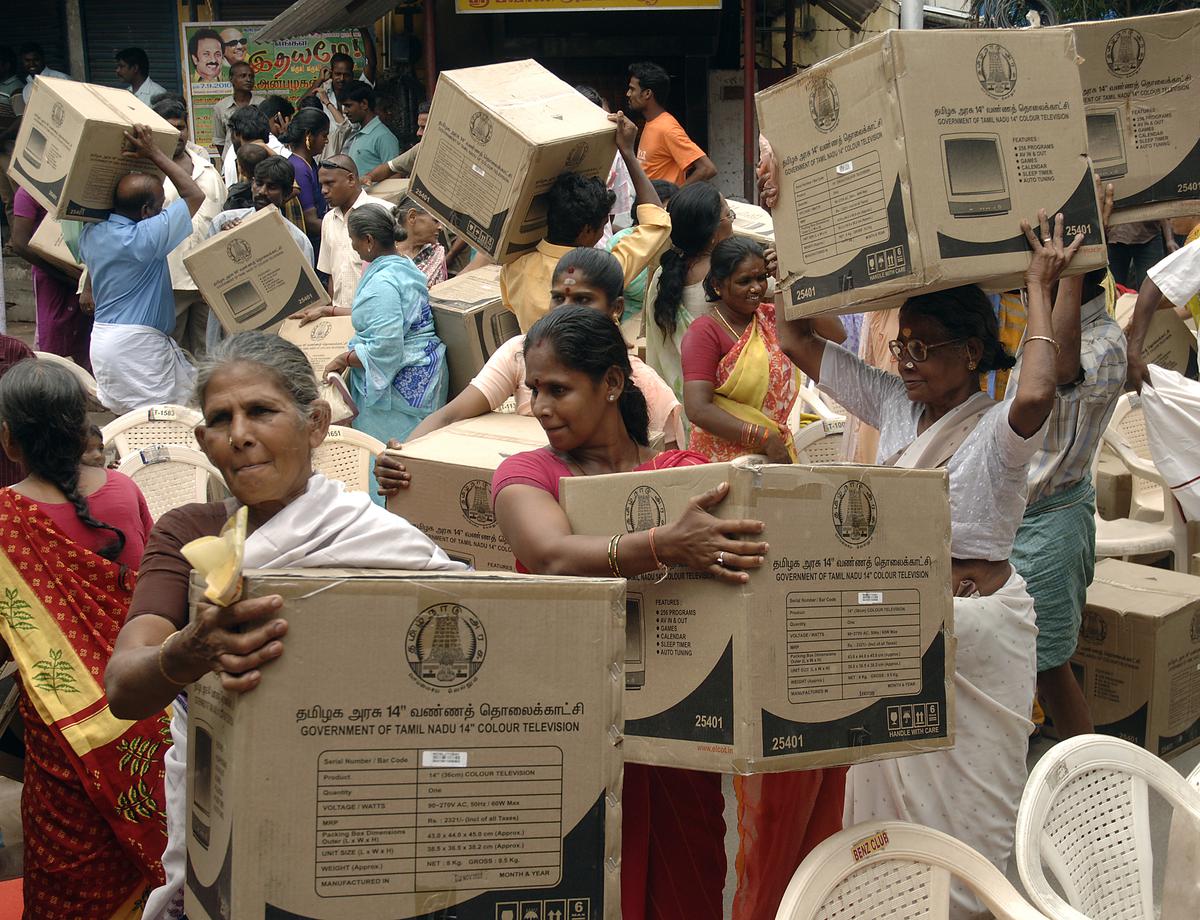
Does the CEC’s sudden move to ask political parties to provide authentic information to voters on the financial viability of their poll promises hint at the poll panel buckling under political pressure?
India is a country where 20 crore people stay Below the Poverty Line and a whopping 51.5 per cent of the nation’s wealth, is in the hands of a handful of people, just one per cent to be precise. Significantly, a massive 60 per cent of the population has a measly 5 per cent share in the country’s economic pie. India is also a country where there is heavy taxation and welfare schemes from the State are few and far in between. And most of the time they are inadequate. For instance, take the various pension schemes where small amounts ranging from Rs 1000 to Rs 5000 per month are transferred into the accounts of the beneficiaries. In today’s world, how does one expect a person, let alone a family survive on paltry sums like that? Similarly, Rs 6,000 a year for poor farmers is not something that will take them very far given that our retail inflation jumped to a five-month high of 7.41 per cent in September due to surging food prices. However, one cannot blame the successive governments, too, because with such a massive population and so many looking to it for help, whatever welfare funds there are get spread quite thin, even though the cost to the exchequer is massive.
In fact, the situation has some of the stakeholders in the government of the day worried too, with RSS general secretary Dattatreya Hosabale recently flagging up the issues of poverty, unemployment and rising inequality. “Poverty in the country is standing like a demon in front of us. It is important that we slay this demon. That 20 crore people are still Below the Poverty Line is a figure that should make us very sad. As many as 23 crore people have less than Rs 375 income per day. There are four crore unemployed people in the country. The labour force survey says we have an unemployment rate of 7.6 per cent,” Hosabale said during a recent webinar organised by RSS-affiliate Swadeshi Jagran Manch as part of its Swawalambi Bharat Abhiyan.
Hosabale echoed what the Opposition has been saying all along about rising inequality, poverty and inflation. So, in such a situation, one cannot blame the beleaguered people who look to the Government for some doles. Particularly during election time, as all Indians are privy to the joke that the netas are only seen by the electorate once in five years when they come asking for votes. The General Elections or Assembly elections are the only time when the janata is janardan and in order to appease the janardan the netas bring offerings like sarees, gold, TV, money, pressure cookers, and even cycles and laptops. Some promise development and some promise to make life easy by giving pecuniary benefits.
Some parties don’t offer consumer goods as freebies but promise intangible welfare measures like good education, healthcare, and some tangible ones like subsidies on power and water bills, to name a few.
It may make the toes of the privileged curl with embarrassment that their fellow countrymen/women vote on these lines, but it is the reality of millions of underprivileged Indians that they cannot make both ends meet and so election time windfalls are welcomed by them.
Besides, welfare measures are not a favour to anyone as the Directives Principles of State Policy in Part IV of the Constitution say that the State Government should promote the welfare of people who are Below the Poverty Line or economically weak and cannot progress without support.
However, these “freebies” have always been a matter of debate in the country. The “Haves” tend to disapprove of them but the “Have Nots” vote for them.
For instance, when the Mid-Day Meal Scheme (MDMS) was launched in Tamil Nadu in the 1980s, there were many controversies surrounding it. But look at it today! The MDMS has become one of the cornerstones of primary education in the country and India has won global accolades for it.
With the world recently having passed through a major pandemic that saw economies and lives destroyed, these welfare measures are finding more and more takers, even in the Middle Class. But a major debate has been triggered in the country about freebies, particularly those promised during election time. It’s disheartening to see how much of our public discourse is biased towards the privileged. Given the rampant inequality and the number of underprivileged in India, we should actually be racking our brains on how to ameliorate the suffering of those living Below the Poverty Line by ramping up pension, social security, healthcare and education. But no, we are obsessing over the precious little that the underprivileged get.
With many States poised to go to the polls in the next few months, the matter of “irrational freebies” — that was first brought up by the RBI in its 2022 report on state finances (spurred to be fair by the economic disaster witnessed by our neighbour, Sri Lanka) and was followed up by the Prime Minister’s remarks on the “revadi culture” — has reached the Supreme Court.
The Central Government wants “freebies” stopped for its own reasons, while the Opposition parties assert, for their own reasons, that their schemes are for the welfare of the people and, thus, must continue.
That political parties will always be on different sides of the fence when there is some major political discourse or debate raging in the country, is a given. But what is unsettling is that now, that autonomous and hallowed institution, the Election Commission of India (ECI) has been dragged into this debate, which it should not have been sucked into in the first place.
No matter what the national view on the various issues that plague India and the fierce political debates that precede every election, one thing that never changed was the fact that the Election Commission always kept out of it all because it’s supposed to be apolitical and non-partisan. It is an autonomous body and has nearly always had the spine to stand up to the Government of the day if asked to do something that is detrimental to the interest of democracy and fair and free elections. The ECI is an institution in itself and all political parties hope to get justice from it as and when the need for it arises. The importance of an objective, strong and equitable ECI cannot be overemphasized for the survival and smooth functioning of a democracy like ours.
Under Article 324 of the Constitution, the Commission’s role and responsibilities are well defined and it has, so far, desisted from intervening in matters other than conducting “free and fair elections”. That’s why the sudden decision by the institution to ask all recognised national and state political parties to provide authentic information to voters on the financial viability of their poll promises has come as a surprise to political parties and citizens alike. The ECI has asked parties to submit their views on the issue by October 19. This has raised quite a storm, with many saying it’s a simple overreach by the poll panel.
Significantly, some time ago, the ECI had told the Supreme Court that “there is not much (it) can do to control the distribution of freebies by a winning party nor can it seize election symbols under the existing laws.” The statutory body took the position that it cannot regulate the distribution of “freebies” and that it is for the voters to decide whether they should elect leaders who offer such “freebies.”
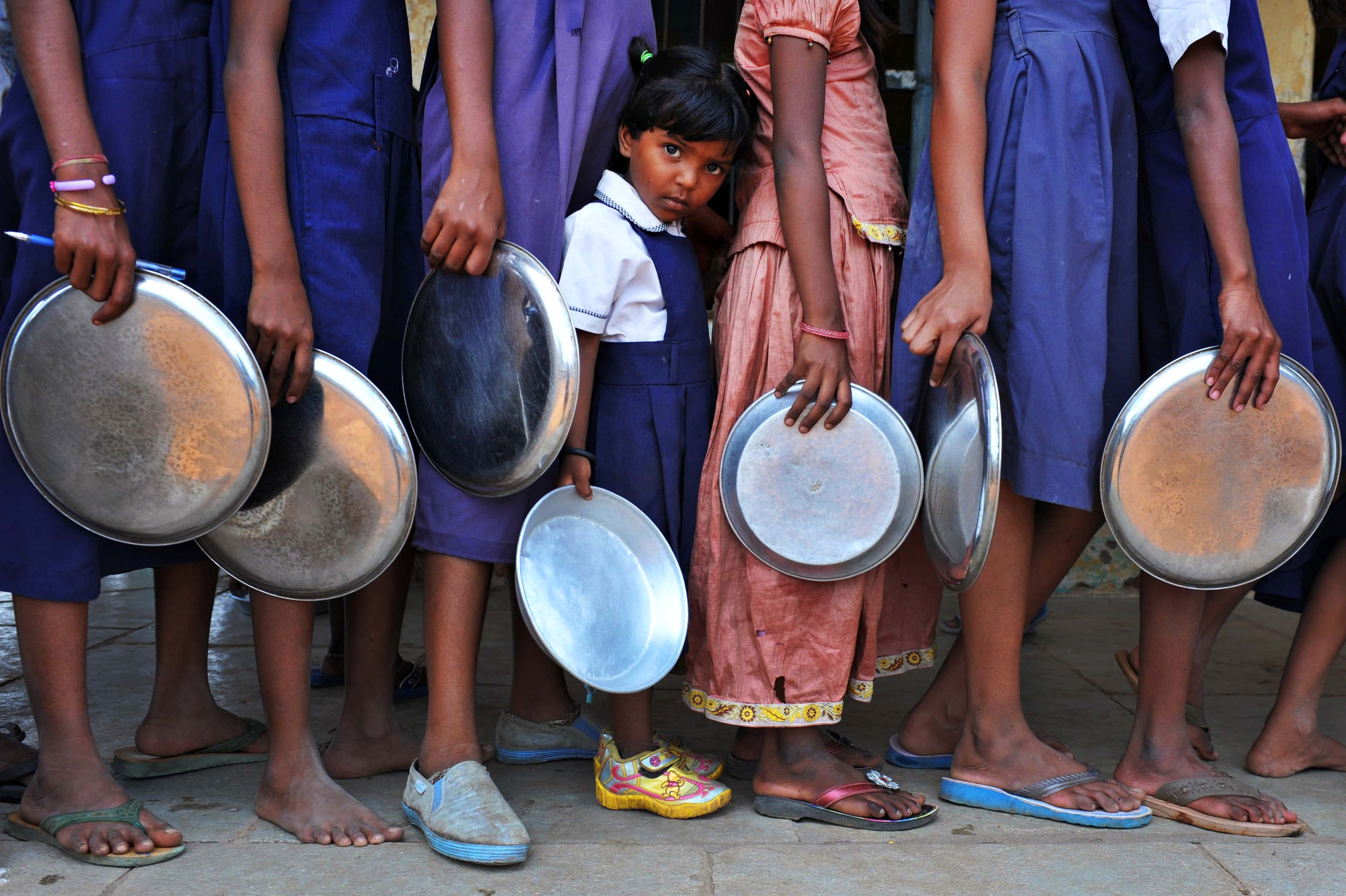
So, this U-turn by the ECI, saying “The Commission notes that the consequences of inadequate disclosures by political parties get attenuated by the fact that elections are held frequently, providing opportunities for political parties to indulge in competitive electoral promises, particularly in multi-phase elections, without having to spell out their financial implications more particularly on committed expenditure,” has raised eyebrows and has triggered accusations of the poll panel buckling under political pressure.
The ECI has taken the plea that if the “parties make adequate disclosures on the financial implications of their promises, the electorate will be able to make informed poll choices.” The ECI wants political parties to elaborate on the rationale for announcing such promises and their financing plan.
Contrasting statements by the ECI in a matter of a few months raise doubts about its independence and non-partisan nature. It has been accused in the past of helping the Government by delaying the announcement of the Model Code of Conduct in a poll-bound State in order to enable the ruling dispensation to announce major projects just before elections.
The ECI’s letter makes one wonder if the poll panel has forgotten that it is supposed to be an autonomous regulator and watchdog for democracy. The ECI’s proposal to change the model code goes against the spirit of competitive politics. More importantly, none of the transformational welfare and social development schemes in India would have become a reality if such bureaucratic overreach had been the norm.
It is no wonder then that several political parties have raised objections to the ECI’s overreach, with the Left parties saying it was not the poll body’s job to “regulate” policy pronouncements and the Congress pointing out that “it is simply not its business” and “will just be yet another nail in the coffin of democracy in the country.”
Significantly, in the S Subramaniam Balaji vs. State of Tamil Nadu case in 2013, the top court had said that the Representation of the People Act (1951) did not restrain political parties from making promises in their election manifesto. This is because the manifesto is a policy statement and the party will only be called upon to implement it if it forms a government. Therefore, the letter seeking mandatory disclosure of the financial ramifications of election promises makes one wonder about the poll panel’s powers to undertake such an act.
Last, but not least, one would like to point out that despite the fact that the Executive controls the ECI’s finances and appointments, over the decades, particularly under the guidance of TN Seshan, the agency earned a reputation for conducting free and fair elections and not bowing to political pressure. In fact, former CEC TS Krishna Murthy termed TN Seshan’s tenure a “turning point” in the history of the poll panel.
“If the history of the Election Commission is written, it has to be divided into two parts — pre-Seshan era where the Commission functioned as a department of the Government and the post-Seshan era when the Commission became more independent,” he wrote in ‘Miracle of Democracy: India’s Amazing Journey.
Since time immemorial, institutions that uphold democracy are under pressure to align themselves with different ideologies, and more so with the ideology of the government of the day. The ECI is under similar pressure now. How it conducts itself will have major ramifications not just for the institution itself but also for democracy and its future. The current CEC has to decide now, how he wants history to remember him.
—








